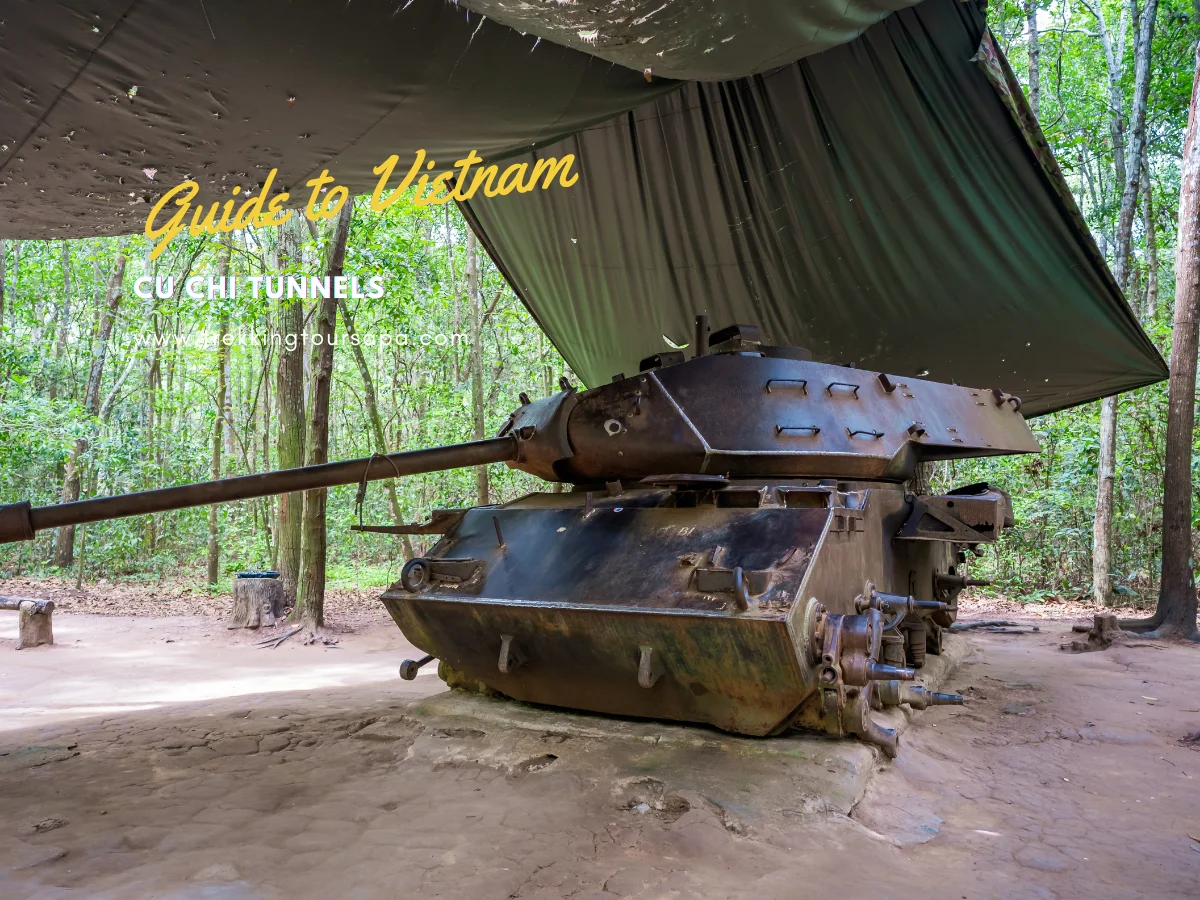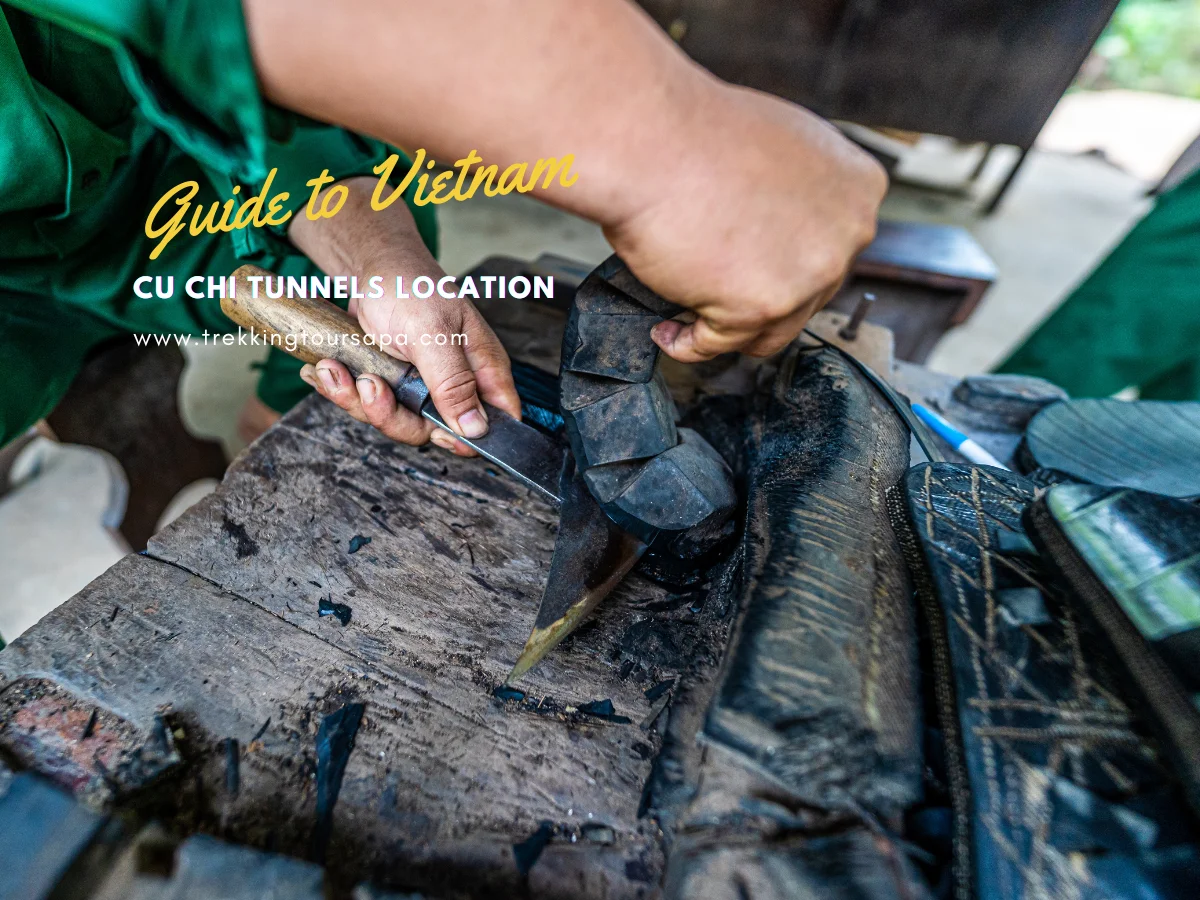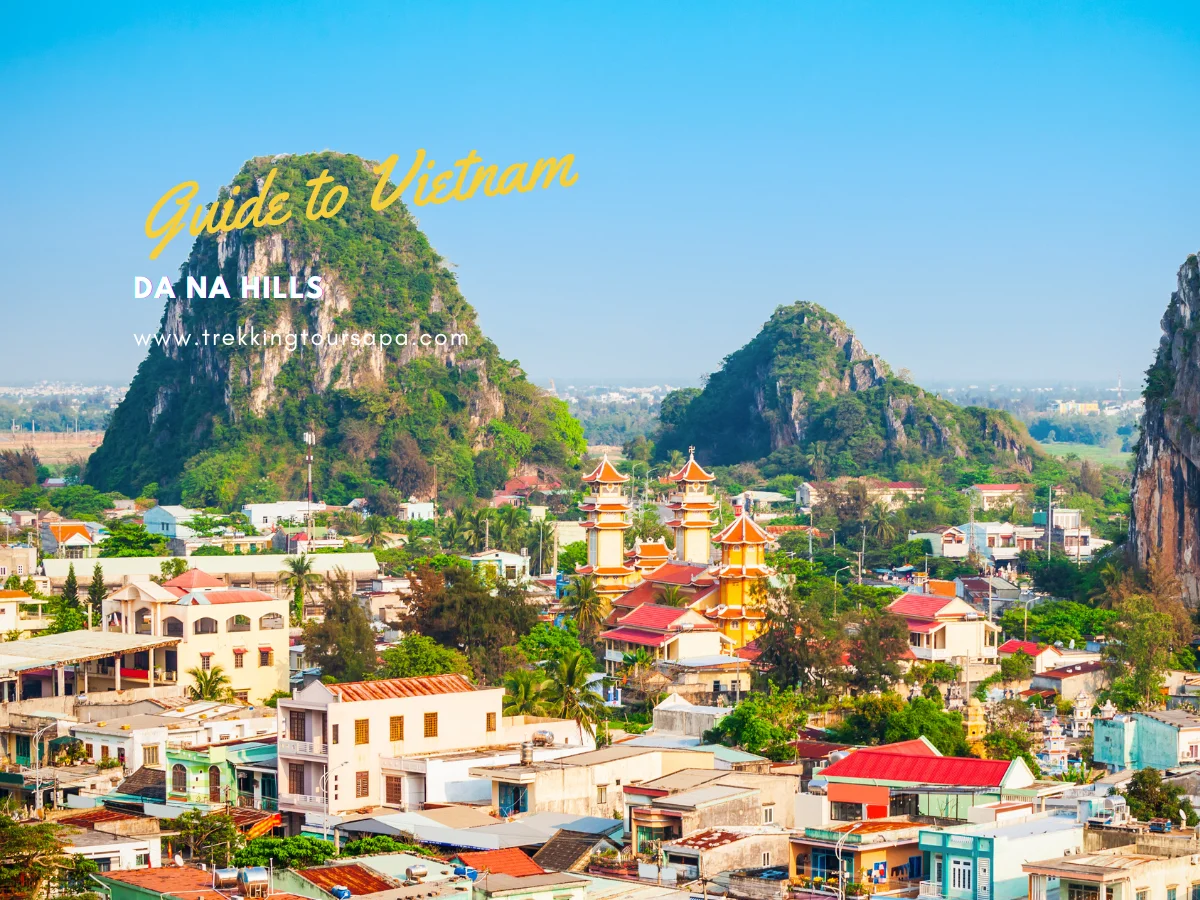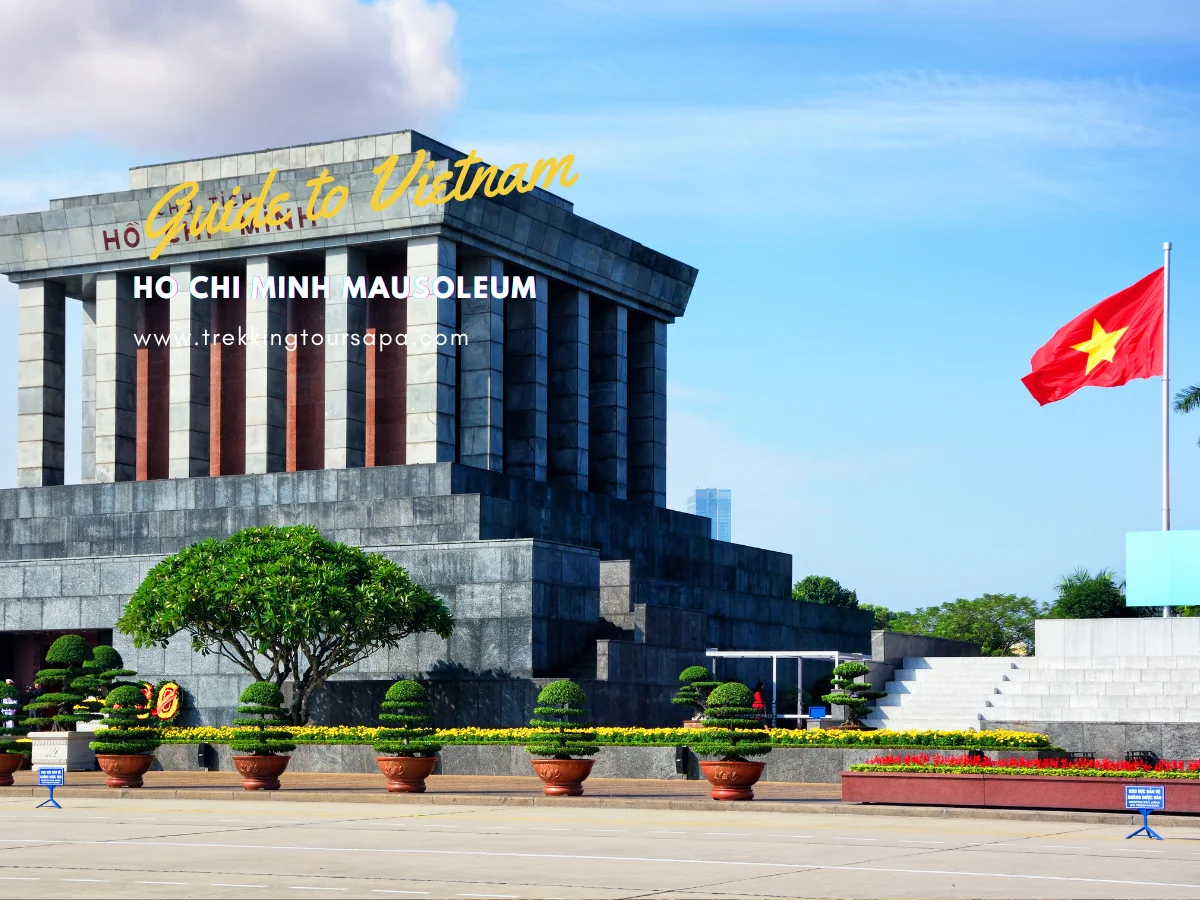Are you looking for an adventure that won’t break the bank? Look no further than the Ha Giang Loop in Vietnam. This stunning 300-kilometer loop takes you through some of Vietnam’s most breathtaking landscapes, including mountains, waterfalls, and rice terraces. And the best part? It can be done on a budget.
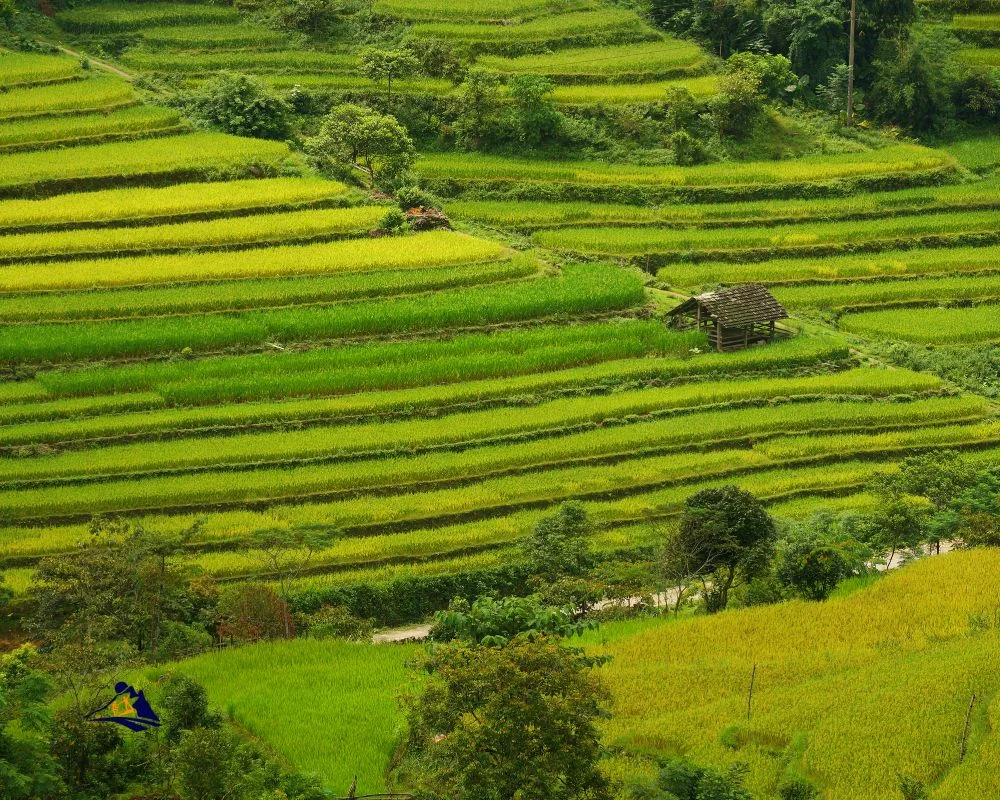
Don’t let the low prices fool you – the Ha Giang Loop is an unforgettable experience that will stay with you for a lifetime. In this ultimate budget adventure guide, we’ll break down everything you need to know about the Ha Giang Loop cost, from renting a motorbike to finding affordable accommodations and meals.
Key Takeaways
- The Ha Giang Loop in Vietnam offers a budget-friendly adventure through stunning landscapes.
- This article will provide a comprehensive guide to the cost of the Ha Giang Loop, including prices for accommodations, meals, transportation, and other essential expenses.
- We’ll also offer practical tips and strategies for planning a budget and breaking down the overall cost of the trip.
Table of Contents
ToggleExploring the Ha Giang Loop: A Thrilling Motorbike Adventure
Picture yourself on a motorbike, navigating winding mountain roads through breathtaking scenery, immersing yourself in the natural beauty and cultural richness of northern Vietnam. This is the Ha Giang Loop, a 300-kilometer journey that takes you through some of the country’s most remote and enchanting landscapes.
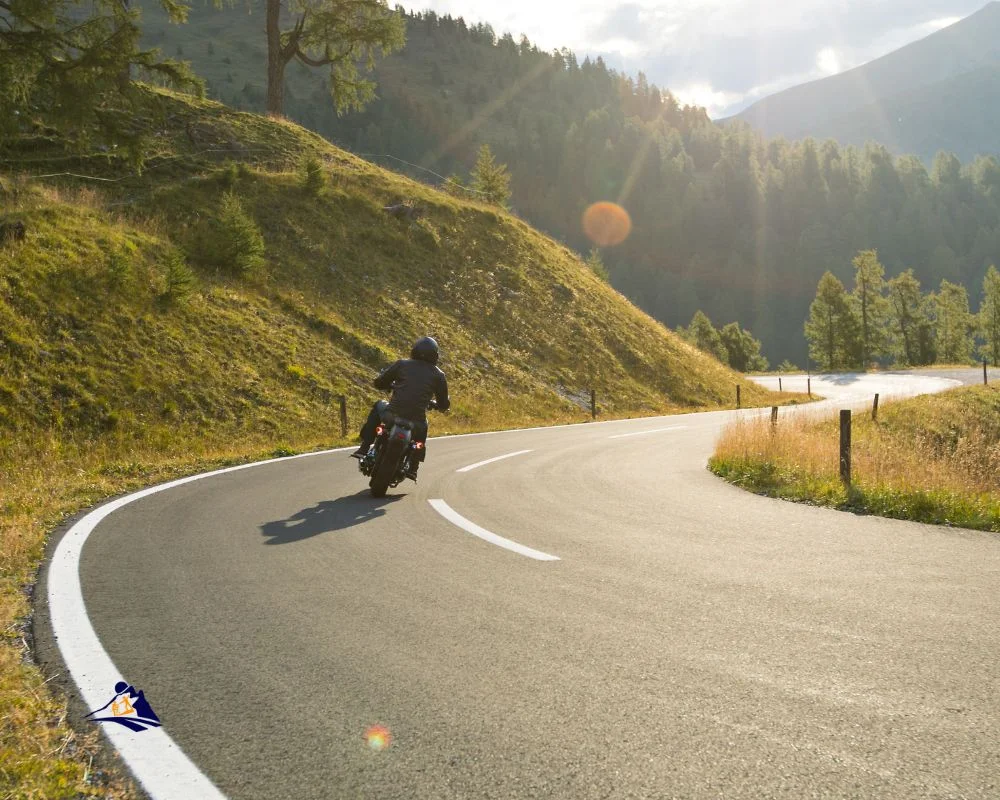
But this adventure comes at a cost, both financial and physical. The Ha Giang Loop is not for the faint of heart, with steep inclines, hairpin turns, and unpredictable weather. It requires a certain level of skill and endurance on a motorbike, as well as careful budgeting and planning.
Expenses Associated with the Ha Giang Motorbike Loop
The expenses associated with the Ha Giang Loop vary depending on your travel style and preferences. Here are some of the main expenses to consider:
| Expenses | Cost (USD) |
|---|---|
| Motorbike rental | 10-20 per day |
| Fuel | 5-10 per day |
| Accommodations | 5-10 per night |
| Meals | 5-10 per day |
| Permits | 10-20 (depending on duration) |
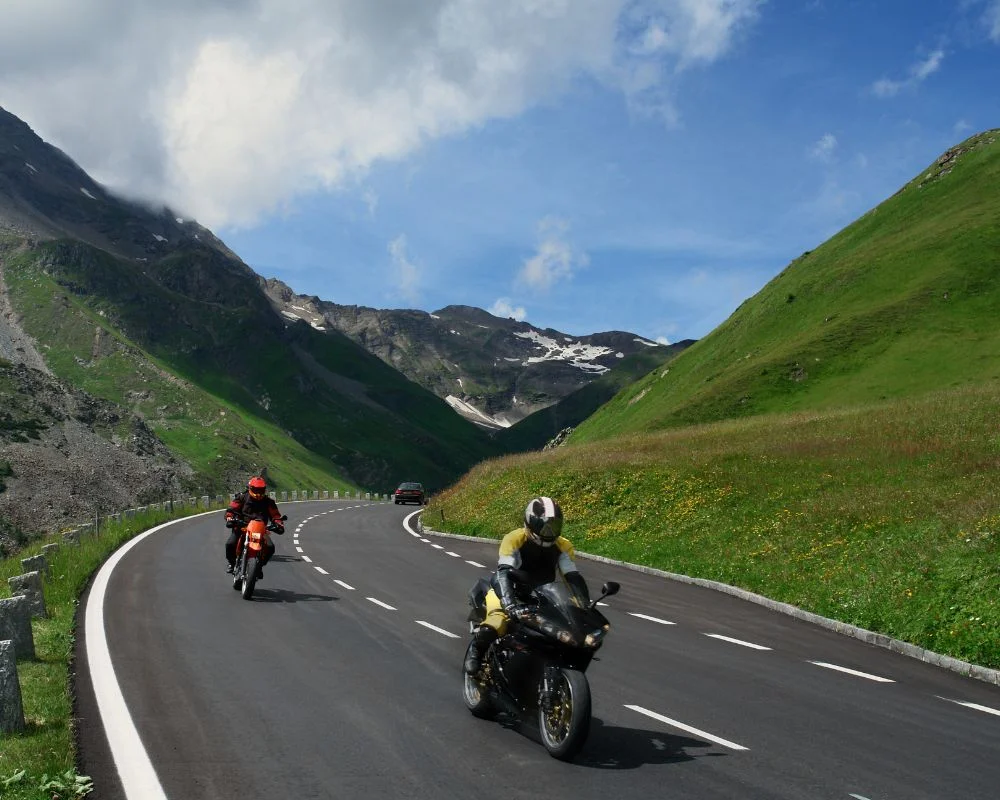
Note that these costs are only estimates and can vary depending on factors such as the time of year, bargaining skills, and whether you opt for budget or more luxurious options.
Factors to Consider when Exploring the Ha Giang Loop
When planning your Ha Giang Loop adventure, it’s important to consider a few factors that can impact your overall experience and expenses:
- Your level of motorbike experience: The Ha Giang Loop can be challenging, so it’s important to have some prior experience riding a motorbike on winding roads.
- The time of year: The weather can be unpredictable, so it’s important to plan accordingly and pack appropriate gear.
- Your budget: The Ha Giang Loop can be done on a shoestring budget, but it’s important to be realistic about your expenses and plan accordingly.
- Your travel style: Are you a solo traveler or do you prefer to travel with a group? Do you prefer budget accommodations or more luxurious options?
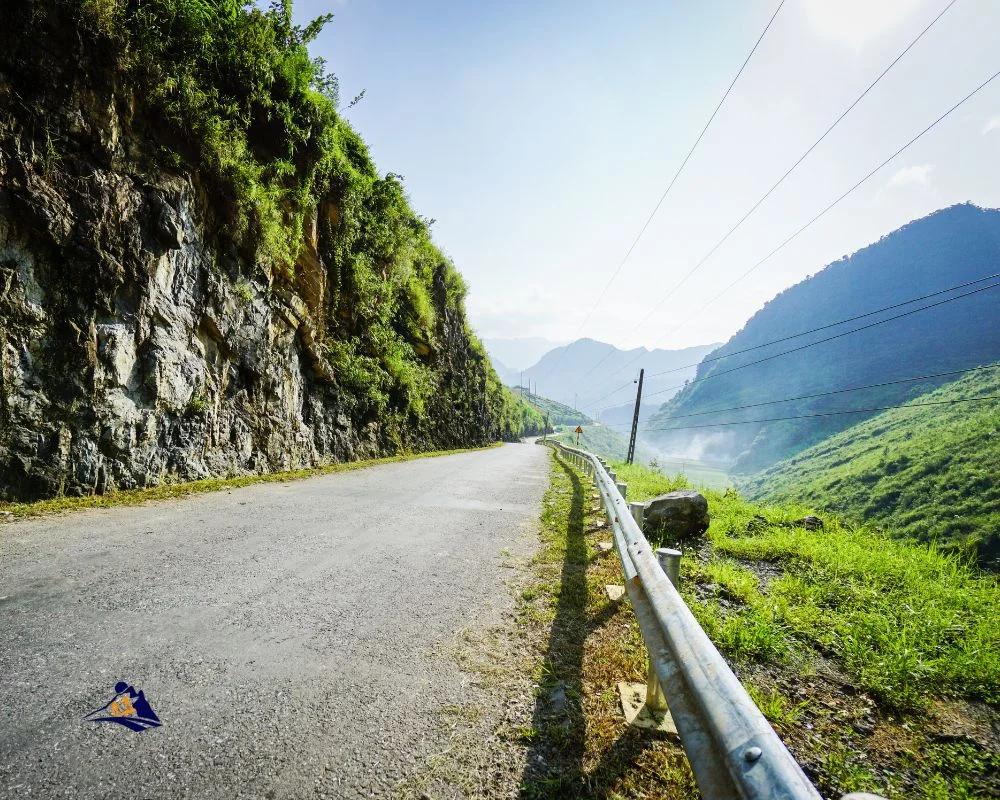
By considering these factors and planning accordingly, you can ensure that your Ha Giang Loop adventure is both thrilling and affordable.
Ha Giang Loop Cost Guide: Prices and Budget Tips
Embarking on a budget-friendly adventure through the Ha Giang Loop can be an exciting and rewarding experience. To help you plan your journey, we have put together a comprehensive cost guide that covers everything you need to know about expenses on your trip. From accommodations to transportation, we have got you covered with all the details you need to budget effectively.
Accommodation Costs
Accommodations along the Ha Giang Loop vary in price and quality. While it is possible to find budget-friendly hostels and homestays, luxury hotels are also available for those who prefer a more comfortable stay. On average, a budget-friendly hostel will cost around $5 to $10 per night, while a mid-range hotel will cost around $20 to $30 per night.

| Accommodation Type | Average Daily Cost |
|---|---|
| Budget Hostel | $5 – $10 |
| Mid-Range Hotel | $20 – $30 |
| Luxury Hotel | $50+ |
Transportation Costs
The most popular way to travel the Ha Giang Loop is by motorbike. Renting a motorbike will cost approximately $10 to $15 per day, depending on the make and model. Remember to factor in fuel costs, which range from $1 to $2 per liter. If you are not comfortable driving a motorbike, you can also hire a car and driver for around $60 to $70 per day.
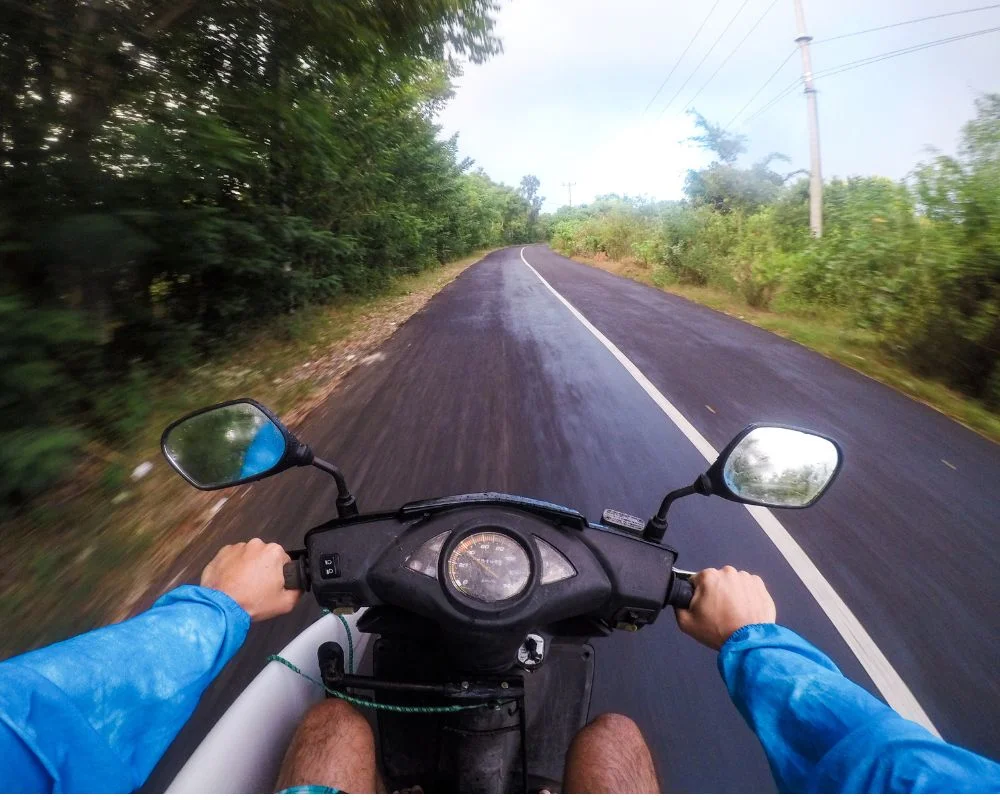
| Transportation Type | Average Daily Cost |
|---|---|
| Motorbike Rental | $10 – $15 |
| Car and Driver Hire | $60 – $70 |
| Fuel (per liter) | $1 – $2 |
Food and Drink Costs
Food and drink costs on the Ha Giang Loop are generally affordable, with meals ranging from $2 to $5. You can also find street food stalls and local markets selling snacks for as little as $1. For drinks, water and soft drinks cost around $0.50 to $1, while local beer can be purchased for around $1 to $2 per bottle.
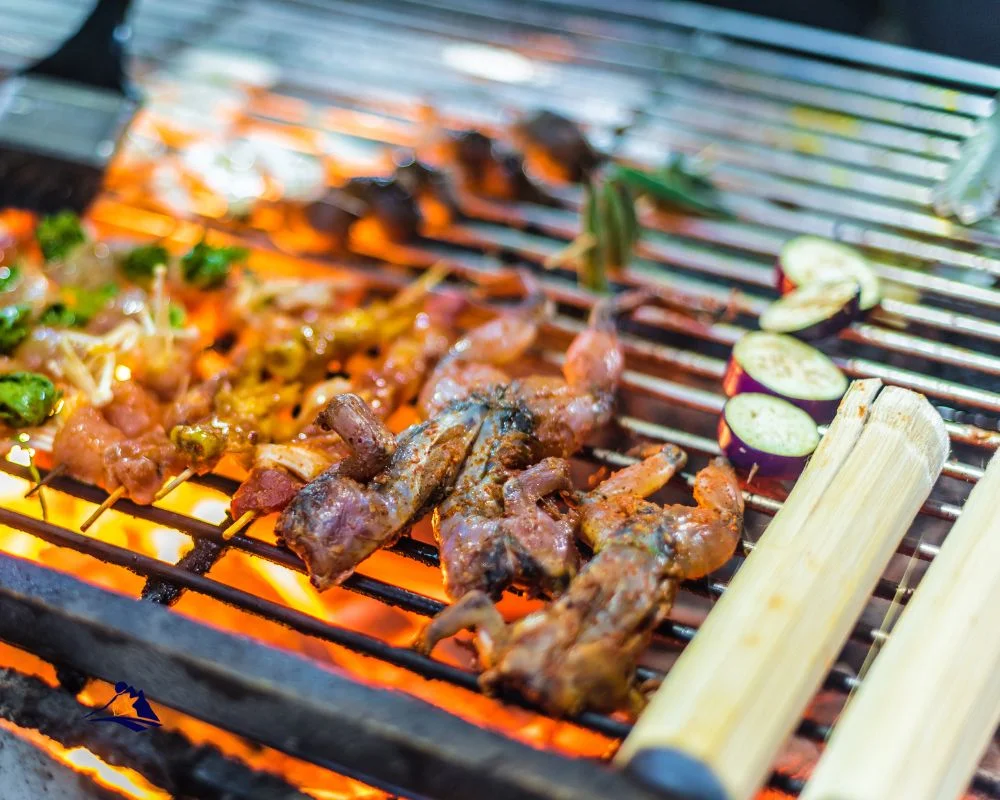
| Food and Drink Type | Average Cost |
|---|---|
| Meal at Local Restaurant | $2 – $5 |
| Street Food or Snack | $1 – $2 |
| Bottled Water or Soft Drink | $0.50 – $1 |
| Local Beer | $1 – $2 |
Other Essential Expenses
Other essential expenses to consider include permits and entrance fees for various attractions, such as the Dong Van Karst Plateau Geopark. These costs can add up, so it is important to budget accordingly. Additionally, renting protective gear like helmets and jackets will also incur extra costs.
| Expense Type | Average Cost |
|---|---|
| Dong Van Karst Plateau Geopark Entrance Fee | $10 |
| Protective Gear Rental (per day) | $3 – $5 |
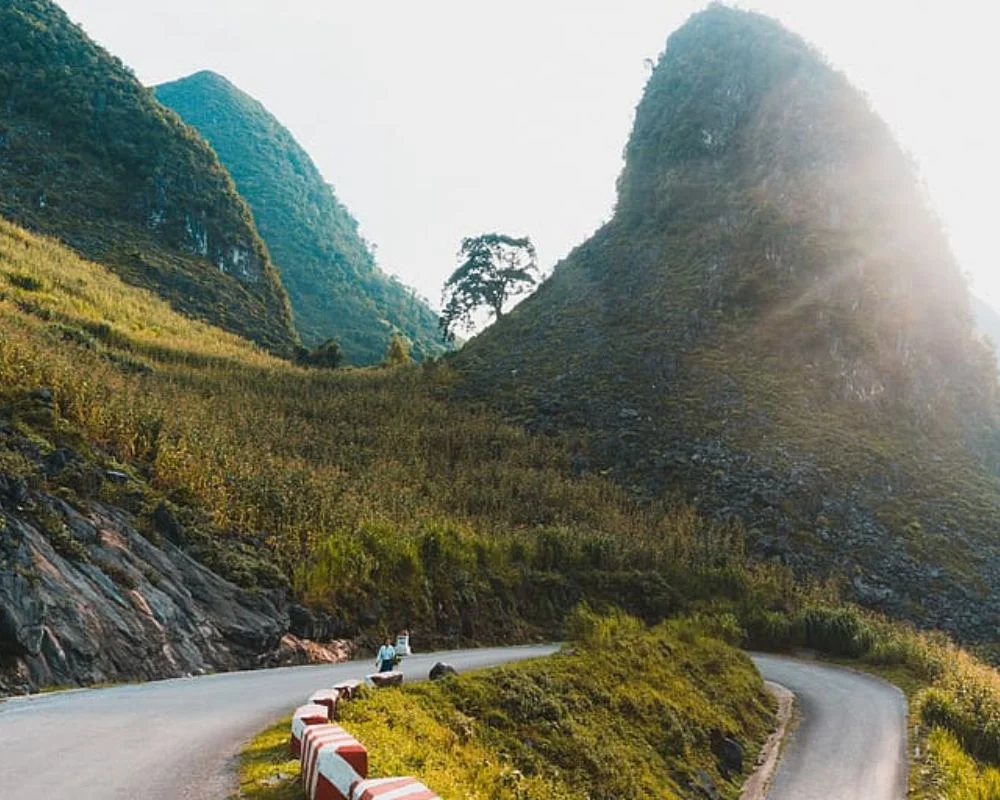
By keeping these expenses in mind and planning your budget accordingly, you can embark on an unforgettable adventure through the Ha Giang Loop without breaking the bank. With a little bit of research and effort, you can enjoy all that this beautiful region has to offer while keeping your expenses under control.
Choosing the Right Motorbike Tour: Factors to Consider.
When planning your Ha Giang Loop adventure, choosing the right motorbike tour is crucial to ensure a smooth and enjoyable journey. There are several factors to consider before making a decision:
- Cost: The cost of the motorbike tour is an essential factor to consider when planning your budget. Look for a tour that fits your budget without compromising on safety and quality.
- Services provided: Check the services included in the motorbike tour package, such as accommodation, meals, and fuel. Some tours may also provide a guide or support van, while others may leave you to explore on your own.
- Reviews: Research online to find reviews from previous customers about their experience with the tour company. Look for comments on safety, quality of motorbikes, and overall satisfaction.
- Group size: Consider the size of the tour group. A smaller group may provide a more personalized experience, while a larger group may offer more opportunities to socialize and make new friends.
- Duration: Check the duration of the tour and whether it fits your schedule. Some tours may offer a shorter or longer itinerary, depending on your preferences.
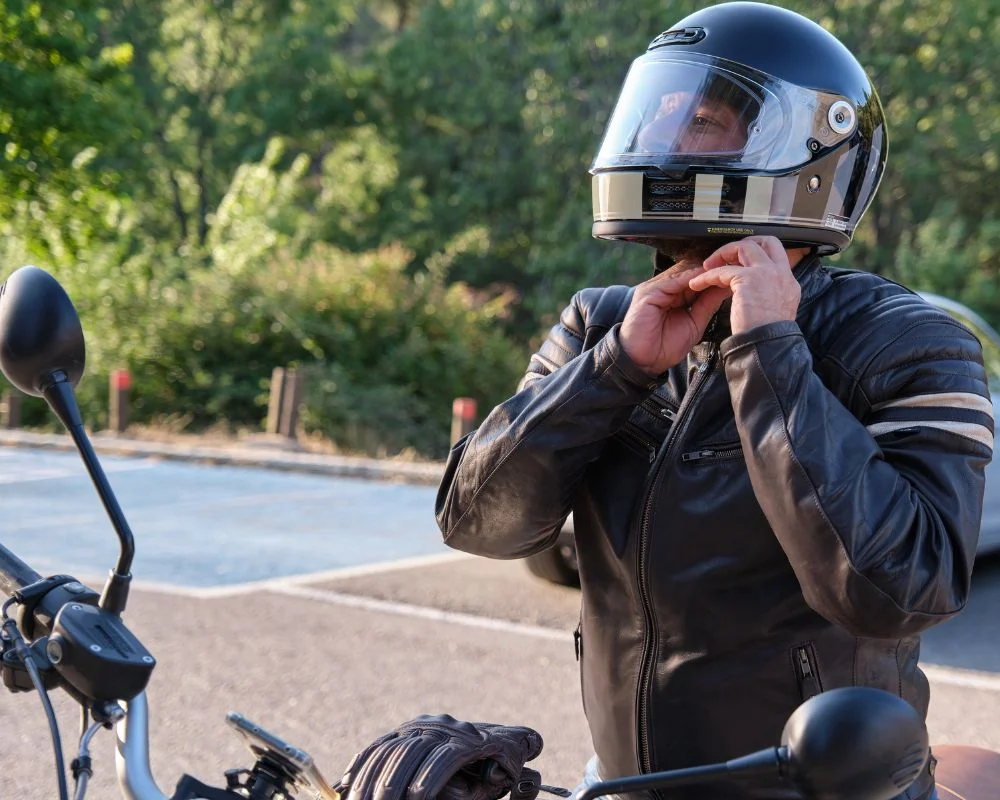
By considering these factors, you can choose the right motorbike tour that meets your needs and budget. Remember, safety should always be your top priority, so don’t compromise on quality for a lower price. Happy adventuring!
Planning Your Ha Giang Loop Budget: Tips and Strategies
Embarking on the Ha Giang Loop adventure can be an incredible experience, but it’s essential to plan your budget carefully to avoid overspending. Here are some practical tips and strategies to help you manage your expenses:
1. Save money on accommodations
One of the best ways to save money on accommodations is by staying in homestays. They’re affordable, and you get to experience the local culture firsthand. Depending on the location and level of comfort, homestays typically cost between $5 and $15 per night. You can also consider sharing a room with fellow travelers to split the cost.
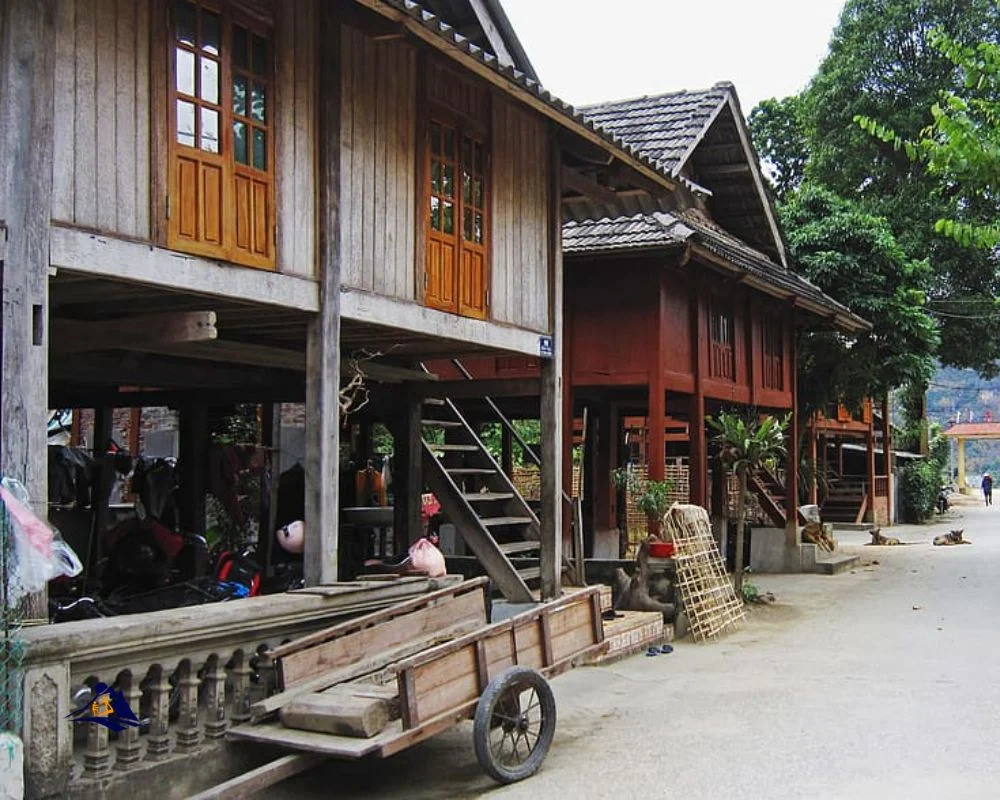
2. Be mindful of your transportation expenses
Renting a motorbike is the most popular way to explore the Ha Giang Loop, but it can also be expensive. To save money, consider sharing a bike with a friend or renting a scooter instead. You can also negotiate the rental price, especially if you’re renting for an extended period.

3. Eat locally
Eating at local restaurants and street food stalls can help you save a significant amount of money on meals. Vietnamese cuisine is known for being delicious and affordable, with dishes such as pho, banh mi, and rice noodles available for a few dollars.
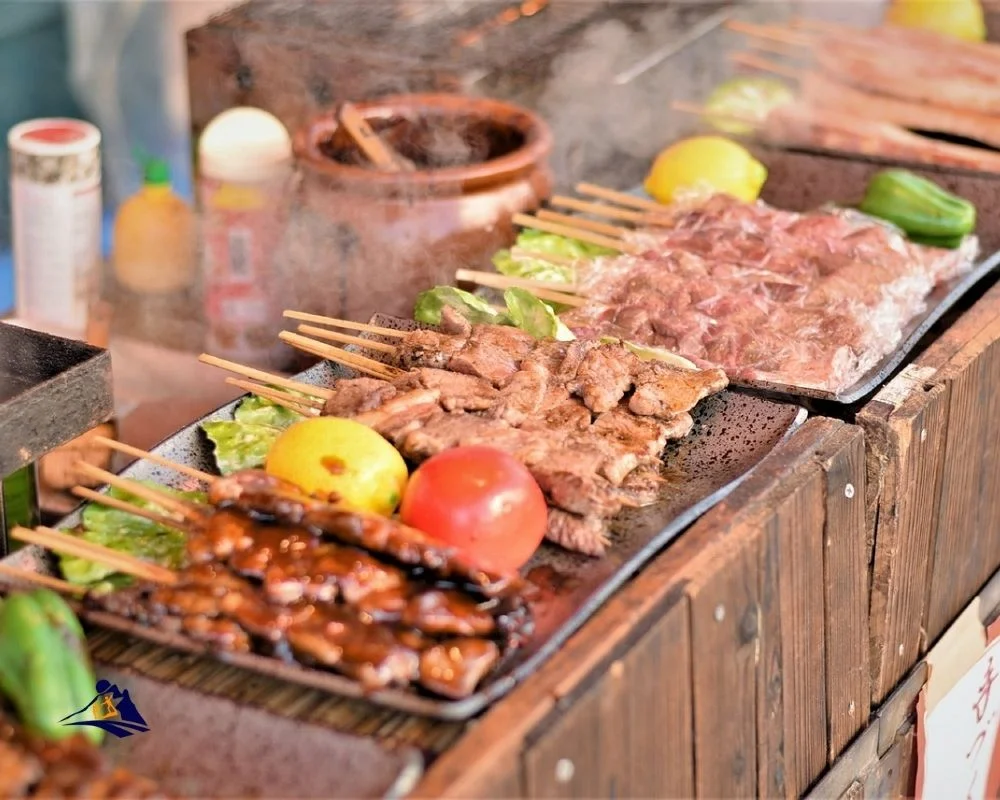
4. Avoid unnecessary expenses
Traveling comes with various expenses, such as souvenirs and tours. While they can be tempting, it’s crucial to avoid overspending on unnecessary things. Before making a purchase, ask yourself if you really need it. Remember, your main focus should be on experiencing the beauty of the Ha Giang Loop.
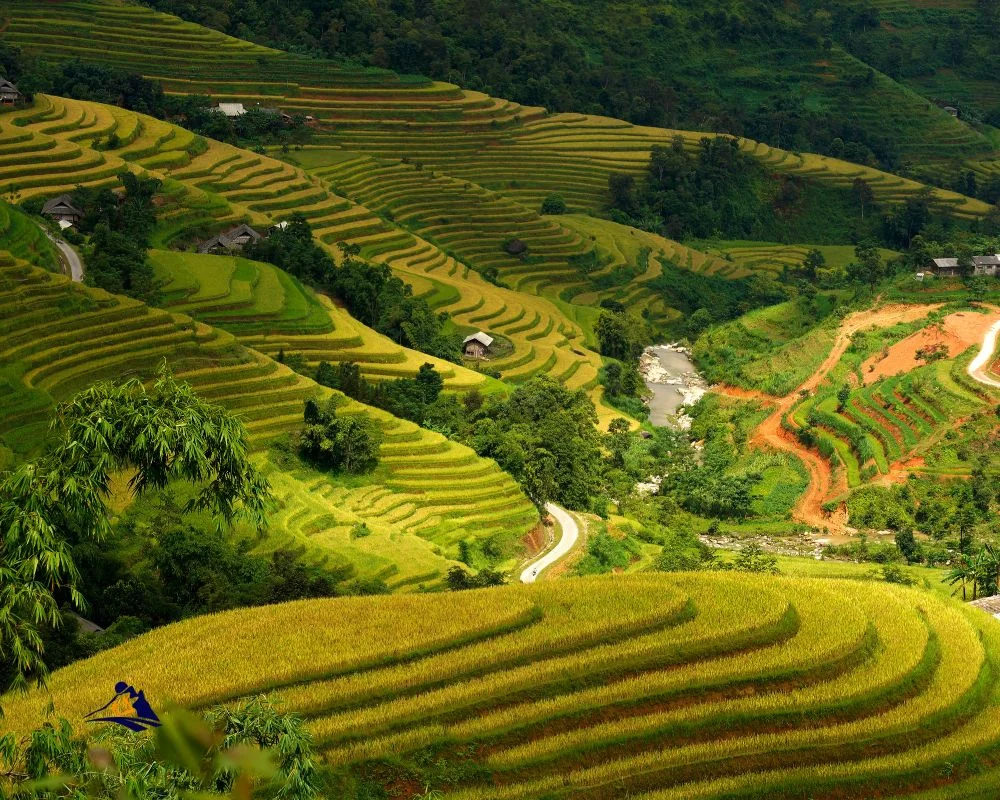
5. Plan your itinerary carefully
Planning your itinerary carefully can help you save money on transportation and accommodations. Consider staying at a homestay or camping in some of the remote areas to cut down on travel expenses. You can also visit popular tourist destinations during off-peak seasons to avoid crowds and save money on entrance fees.

By following these tips and strategies, you’ll be able to plan your Ha Giang Loop budget effectively while still enjoying all the adventure and beauty that it has to offer.
Accommodation Options on the Ha Giang Loop: Prices and Recommendations
As you embark on your Ha Giang Loop adventure, finding the right accommodation is crucial to ensuring a comfortable and enjoyable experience. Fortunately, there are plenty of affordable options along the way that offer great value for money.
Homestays
If you’re looking for an authentic experience, staying in a homestay is highly recommended. You’ll get to stay with a local family, learn about their way of life, and enjoy traditional meals. Prices for homestays range from $5 to $15 per night, and you can expect basic facilities such as a bed, a shared bathroom, and Wi-Fi.
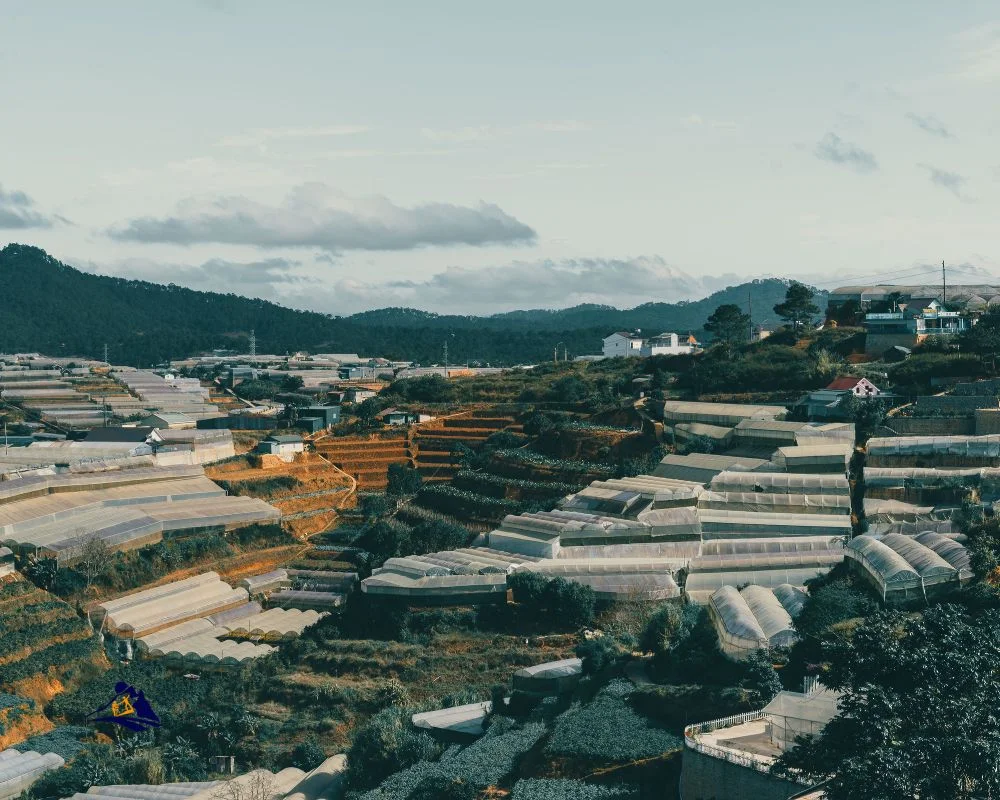
Guesthouses
Guesthouses are a popular choice for budget travelers, offering comfortable rooms and amenities such as hot showers and Wi-Fi. Prices range from $8 to $20 per night, depending on the location and level of comfort. Most guesthouses come with a communal area where you can meet other travelers and share stories.
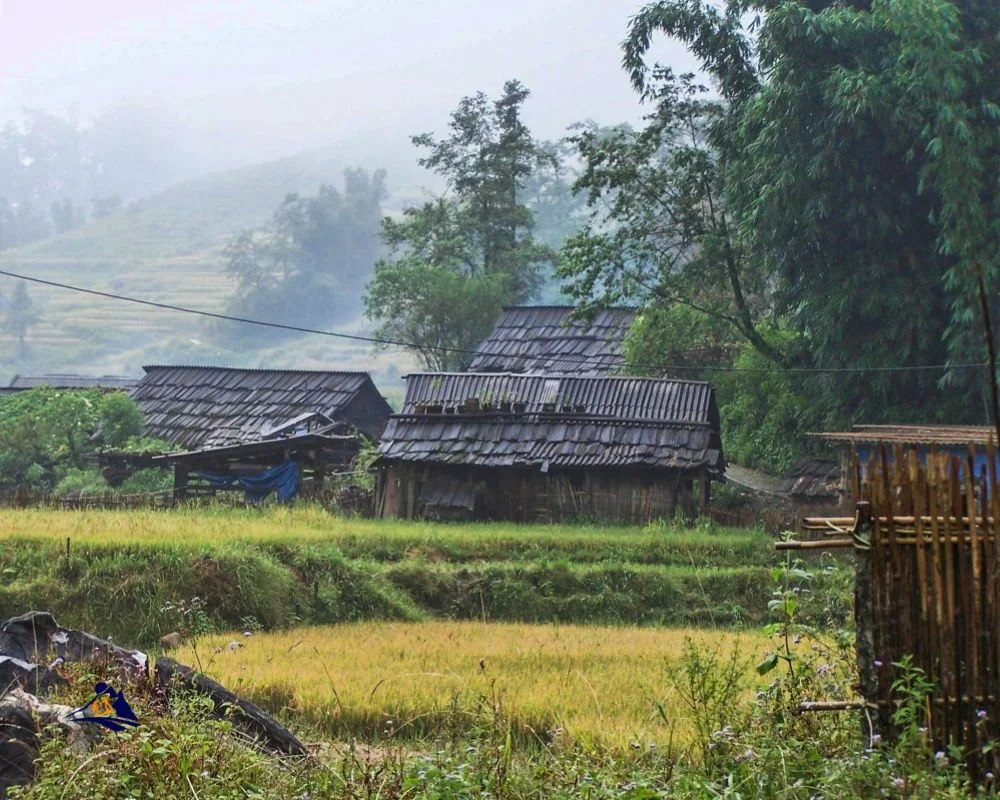
Hotels
If you’re willing to splurge a bit, there are plenty of hotels along the Ha Giang Loop that offer great value for money. Prices start from $25 per night and go up depending on the level of luxury and amenities. Many hotels come with a restaurant, a bar, and a pool, making them a great choice for those who want to relax and unwind after a long day of riding.
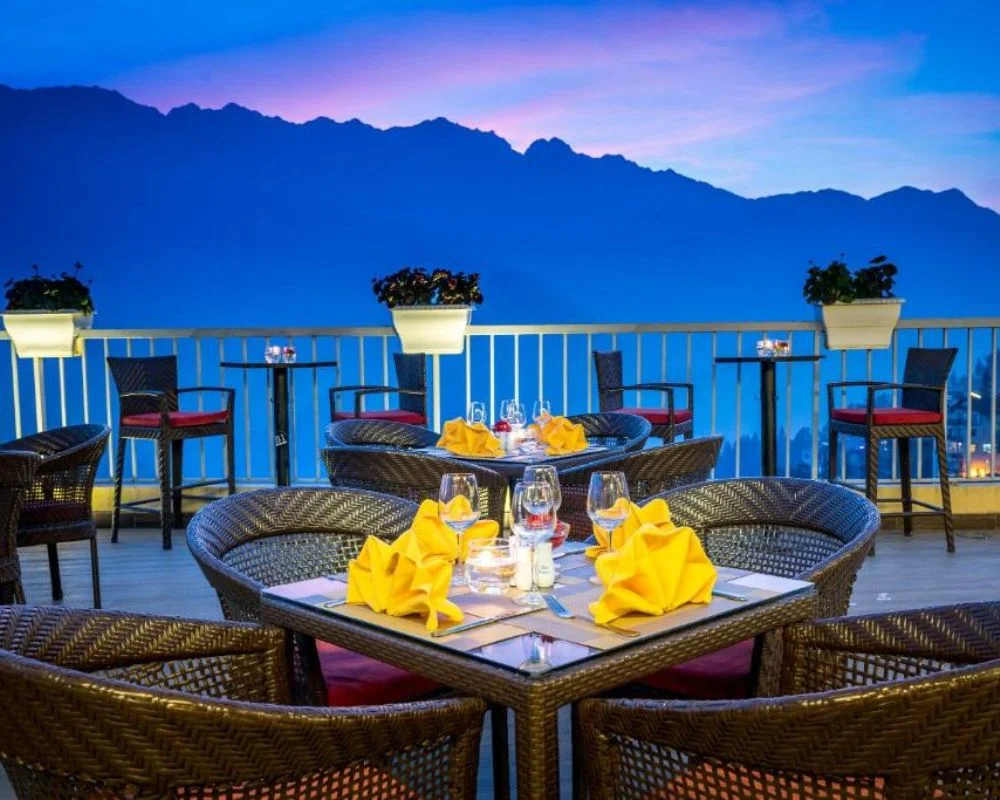
Whichever type of accommodation you choose, it’s always a good idea to book in advance during peak season (from September to November) to avoid disappointment. You can use booking websites such as Booking.com or Agoda.com to find the best deals and compare prices. Remember to check the reviews before making a reservation and make sure the accommodation meets your expectations.
Budgeting for Travel Expenses on the Ha Giang Loop
Traveling on a motorbike through the Ha Giang Loop is an unforgettable experience, but it’s important to budget properly to avoid unexpected expenses. Here’s a breakdown of the essential travel expenses to help plan your adventure:
Fuel Costs
Expect to spend around $10-$15 USD per day on fuel, depending on your route and the type of motorbike you’re using. Remember to factor in additional fuel costs if you plan on making detours or exploring off-the-beaten-path areas.
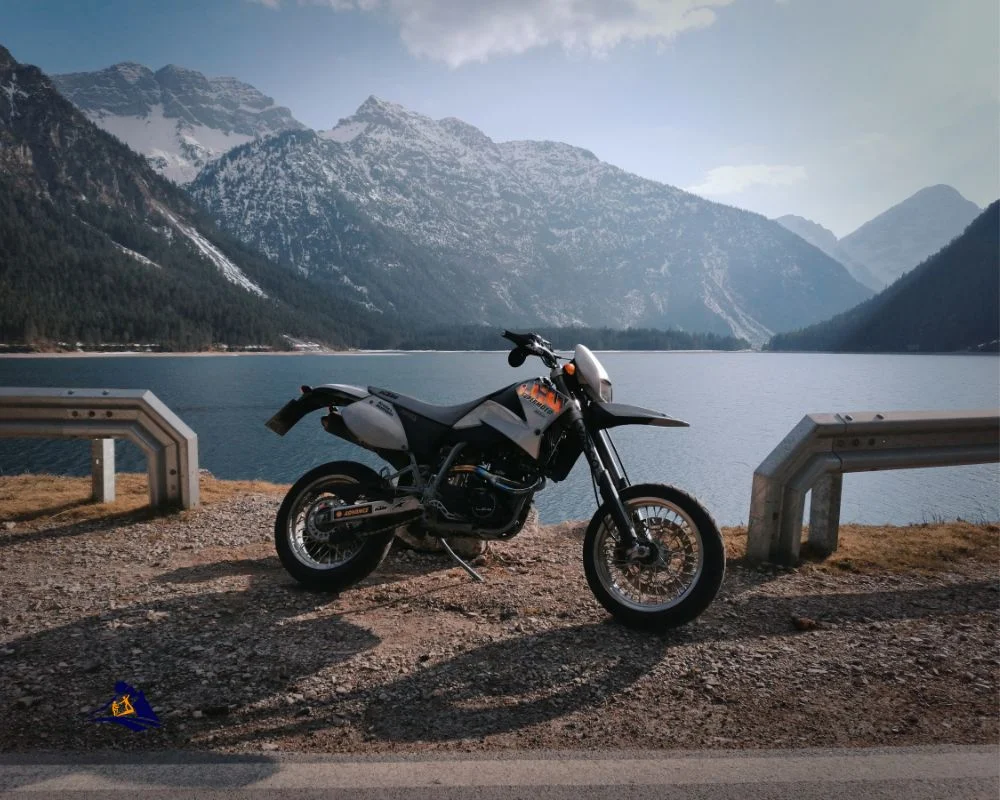
Accommodation Costs
Accommodation on the Ha Giang Loop ranges from budget homestays to luxury hotels, with prices varying accordingly. Budget travelers can expect to pay around $5-$10 USD per night for a basic homestay, while mid-range hotels and guesthouses cost around $15-$30 USD per night. If you’re looking for a more luxurious experience, expect to budget around $50 USD per night or more.
Meals and Drinks
Street food is king on the Ha Giang Loop, with plenty of delicious and affordable options available. Expect to pay around $2-$3 USD for a filling meal, with drinks costing an additional $1-$2 USD. If you prefer restaurants, expect to pay slightly more, with meals costing around $5-$10 USD.
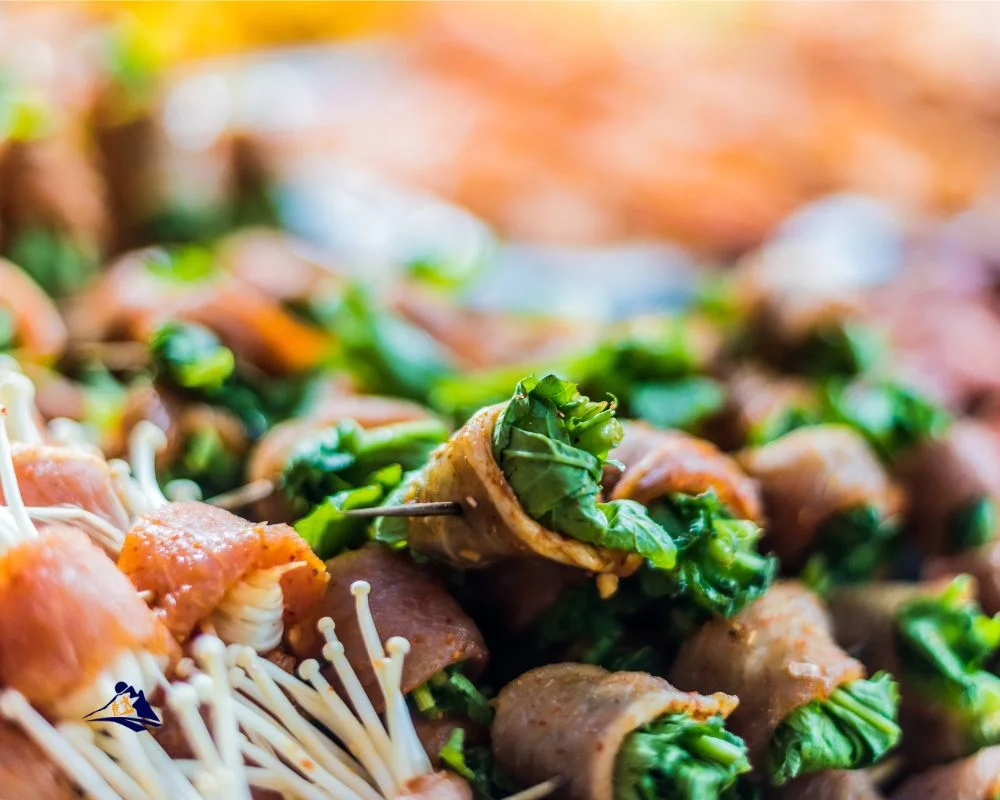
Permits and Entrance Fees
To enter certain parts of the Ha Giang Loop, you may need to purchase a permit or pay an entrance fee. These costs vary depending on the area, but expect to budget around $5-$10 USD per permit or entrance fee.
Other Expenses
Other miscellaneous expenses to consider include parking fees, motorbike maintenance costs (such as changing tires or replacing parts), and souvenirs. It’s important to budget for these expenses, as they can add up quickly.
With proper budgeting and planning, you can enjoy the incredible beauty of the Ha Giang Loop without breaking the bank. Use this breakdown of essential travel expenses to plan your adventure and make the most of your budget.
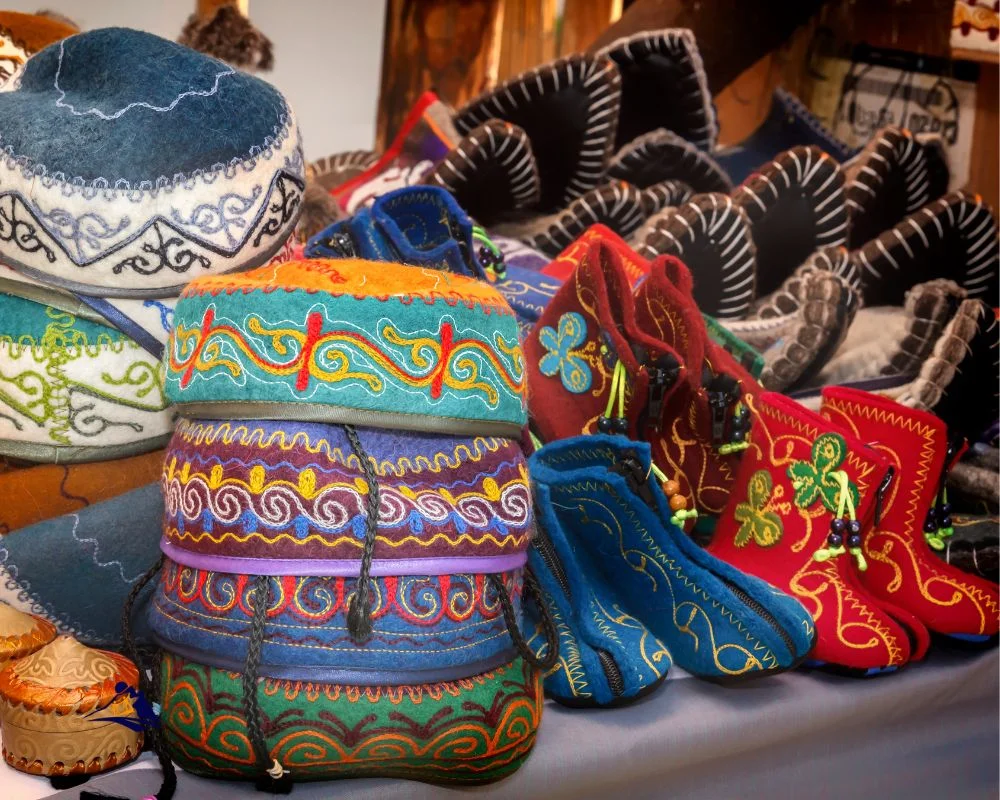
Calculating the Total Cost of a Motorbike Trip in Ha Giang
Planning a budget for your Ha Giang Loop adventure can seem daunting, but with a little preparation and some helpful tips, you can enjoy the ride without breaking the bank. Here is a step-by-step guide to calculating the total cost of your motorbike trip in Ha Giang:
- Start with the basics: Plan for your major expenses such as transportation, accommodation, food, and activities. Research online to get a general idea of average costs.
- Add up your transportation costs: Factor in the cost of renting a motorbike, fuel, and any necessary repairs or maintenance. Additionally, consider the cost of transportation to and from Ha Giang, including flights and bus fares.
- Estimate your accommodation costs: Determine your preferred lodging option, be it hostels, homestays, or hotels, and research the prices accordingly. Budget-conscious travelers may opt for shared accommodations, while those looking for privacy and comfort may prefer private rooms.
- Factor in food and drink expenses: Consider budgeting for meals and snacks both on and off the road. While dining in local restaurants is a great way to experience the authentic cuisine and culture of the region, it can add up quickly. Check out local street food options as these are cheaper alternatives.
- Include permits and entrance fees: To access some of the best routes on the Ha Giang Loop, you may need to obtain a permit. Check with local authorities to determine the necessary permits and their costs. Additionally, you may encounter fees for entrance to attractions or national parks.
- Budget for miscellaneous expenses: Allow some wiggle room in your budget for unexpected expenses such as medical emergencies or unexpected circumstances.
- Track your spending: Once on your trip, keep track of your expenses for each category. This will give you an idea of where you can cut back or adjust your spending.
- Adjust your budget accordingly: Review your spending each day and adjust your budget accordingly. If you overspend in one category, find ways to save in another.
- Don’t forget to have fun: Finally, remember that your Ha Giang Loop adventure should be a fun and enjoyable experience. Don’t stress too much about the budget and focus on the amazing scenery and the thrill of the ride.
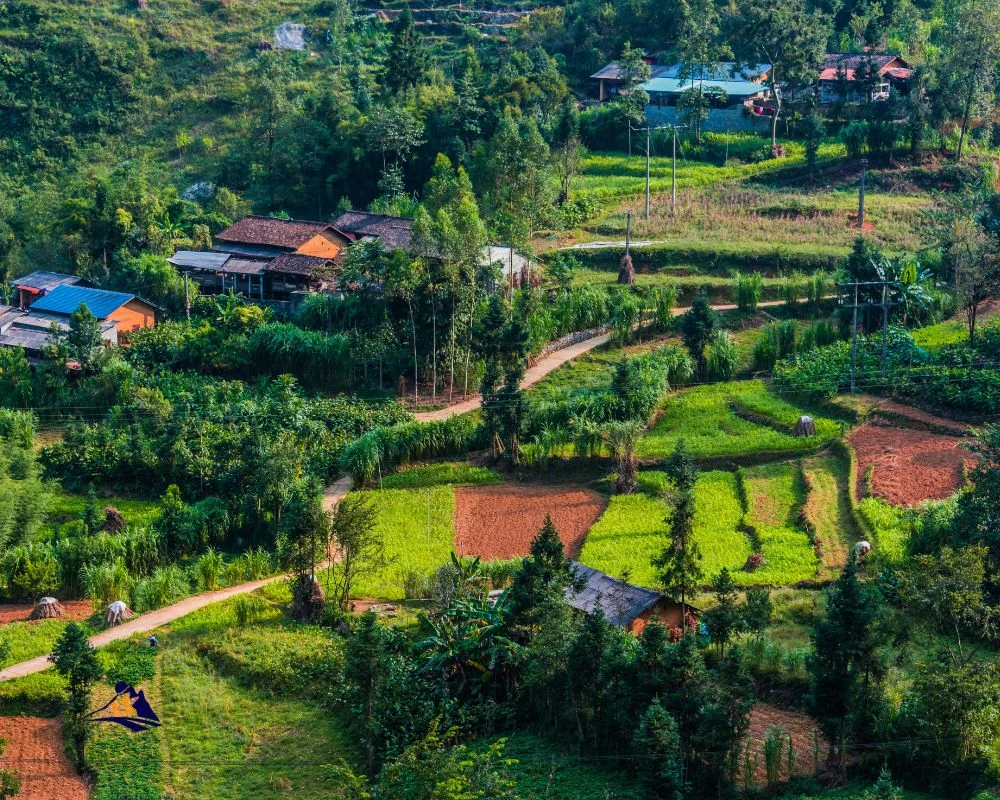
By following these steps, you can successfully calculate the total cost of your motorbike trip in Ha Giang, and make necessary adjustments to maximize your budget. It’s all about finding the right balance and making the most of your adventure!
Breaking Down the Ha Giang Loop Cost: A Detailed Analysis
Now that you have a better understanding of the expenses associated with the Ha Giang Loop, let’s break down the costs further to give you a more detailed analysis of where your money will be going.
| Expense Category | Percentage Allocation |
|---|---|
| Motorbike Rental and Insurance | 35% |
| Accommodations | 25% |
| Meals and Drinks | 15% |
| Fuel | 10% |
| Entrance Fees | 5% |
| Other Expenses (Permits, Repairs, etc.) | 10% |
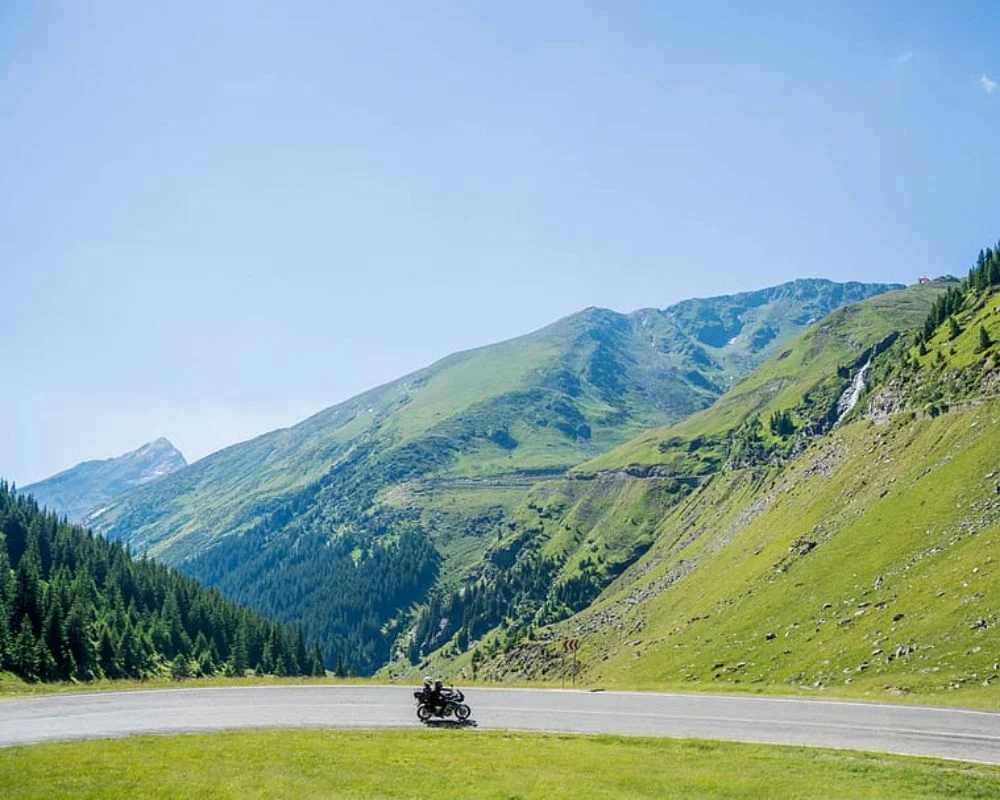
As you can see, motorbike rental and insurance make up a significant portion of your expenses, followed by accommodations and meals. Fuel and entrance fees are also a consideration, but make up a smaller percentage of your budget.
By understanding these expense categories and their percentage allocation, you can better plan your budget and make informed decisions about where to save and where to splurge during your Ha Giang Loop adventure.
Best Time to Visit Ha Giang: Weather and Cost Considerations
If you’re planning a trip to Ha Giang, it’s important to consider the best time to go. The weather and time of year can have a significant impact on your travel experience, as well as on your budget. Here are some things to keep in mind when deciding when to visit.
Weather Considerations
The weather in Ha Giang can vary throughout the year, so it’s important to plan accordingly. The best time to visit is during the dry season, which typically runs from September to December. During this time, you can expect clear skies and cooler temperatures, making for comfortable and enjoyable riding conditions. However, keep in mind that temperatures can drop significantly at night, so be sure to bring warm layers and appropriate gear.

The wet season from May to August, on the other hand, can bring heavy rainfall and unpredictable weather conditions. The roads can become muddy and slippery, making for potentially hazardous riding conditions. It’s best to avoid visiting during this season unless you’re an experienced rider and prepared for the weather conditions.
Cost Considerations
The cost of traveling to Ha Giang can vary depending on the time of year. During peak season, which runs from October to April, prices for accommodations and rental bikes can be higher. This is especially true during the Vietnamese New Year (Tet), which typically falls in January or February. On the other hand, traveling during the off-season, such as in the wet season, can offer lower prices and fewer crowds.
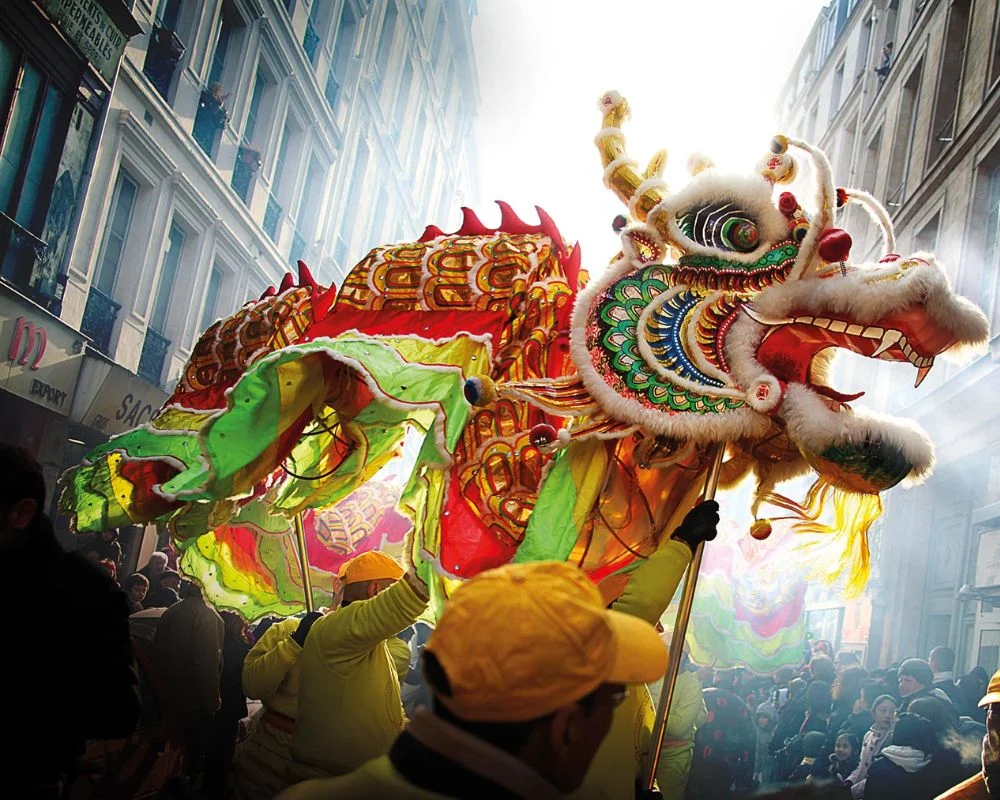
When planning your trip, be sure to factor in the costs associated with the weather conditions. For example, if you’re traveling during the wet season, you may need to budget for rain gear and other protective equipment.
Regardless of when you choose to visit, the Ha Giang Loop is sure to offer an unforgettable adventure at an affordable cost.
Safety Tips for the Ha Giang Loop: Ensuring a Smooth Journey
Embarking on the Ha Giang Loop adventure can be exciting, but it’s essential to prioritize safety to ensure a smooth journey. Here are some safety tips to keep in mind:
- Wear protective gear: It’s crucial to wear a helmet, gloves, sturdy shoes, and appropriate clothing to protect yourself from any accidents or injuries.
- Follow traffic rules: Always adhere to traffic rules and regulations and keep to the right side of the road.
- Be cautious on mountain roads: The mountain roads can be steep, narrow, and winding, so drive carefully and avoid overtaking on blind corners.
- Inspect your motorbike: Before starting your journey, double-check that your motorbike is in good condition, with functioning lights, brakes, and tires.
- Stay hydrated: Bring plenty of water to ensure you stay hydrated throughout the journey.
- Be prepared for emergencies: Keep a first-aid kit, a mobile phone, and emergency contact details with you at all times.
- Stay alert: Be aware of your surroundings, stay focused, and avoid consuming alcohol or drugs before or during your journey.
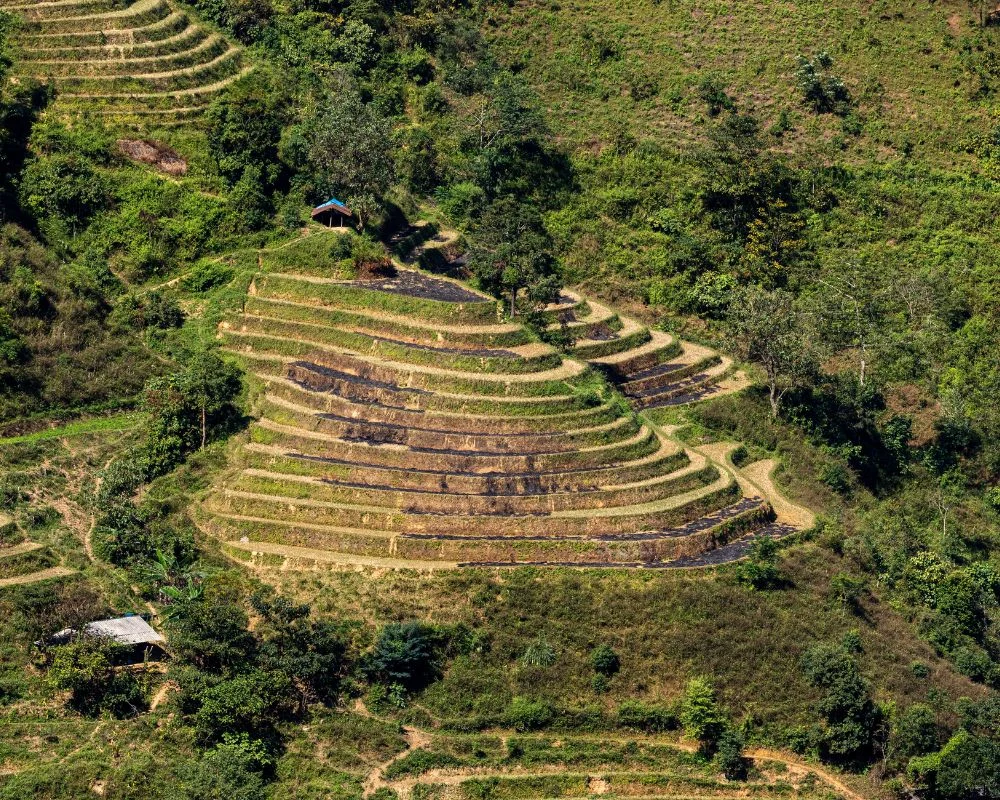
Remember, safety should always come first, even on an adventurous trip like the Ha Giang Loop. By following these safety tips, you can ensure a hassle-free and enjoyable journey.
Ha Giang Loop Itinerary: Must-Visit Destinations and Attractions
Embarking on the Ha Giang Loop adventure promises a journey of a lifetime, with breathtaking scenery and cultural experiences. To make the most of your trip, here are some must-visit destinations and attractions:
| Destination/Attraction | Estimated Cost |
|---|---|
| Dong Van Karst Plateau Geopark | $5 |
| Lung Cu Flag Tower | $1 |
| Ma Pi Leng Pass | N/A |
| Meo Vac Market | $2 |
| Tham Ma Slope | N/A |
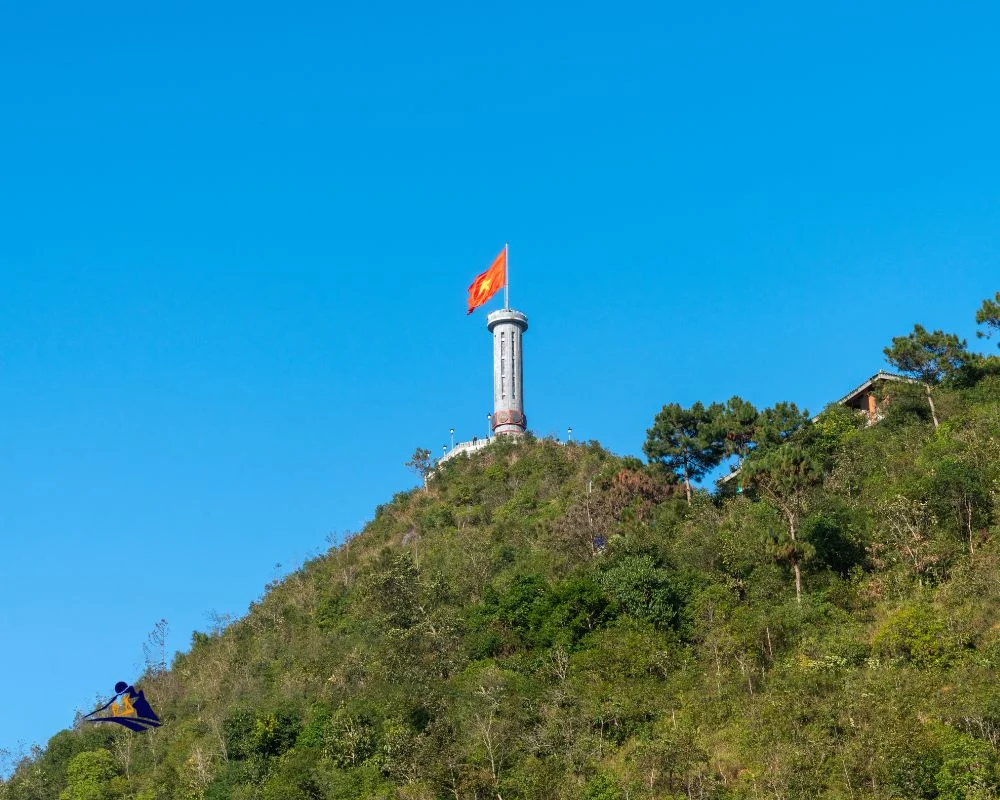
The Dong Van Karst Plateau Geopark is a UNESCO World Heritage Site and offers stunning views of the surrounding mountains. The Lung Cu Flag Tower is a symbol of Vietnamese unity and stands at the northernmost point of the country. The Ma Pi Leng Pass is a thrilling ride that takes you through deep canyons and steep cliffs. The Meo Vac Market is a bustling local market where you can find unique souvenirs and taste delicious regional food. The Tham Ma Slope is a challenging but rewarding ride that offers panoramic views of the mountains.
Make sure to budget accordingly for each destination and attraction. Some of the attractions, such as Ma Pi Leng Pass and Tham Ma Slope, do not have an entrance fee, but you will need to pay for fuel and motorcycle rental. Others, such as Dong Van Karst Plateau Geopark and Meo Vac Market, have a small entrance fee.
Remember to bring a camera to capture stunning photos of the natural beauty and cultural experiences. Enjoy the ride and immerse yourself in the local culture!
Conclusion
Congratulations on making it to the end of our ultimate budget adventure guide for the Ha Giang Loop! By now, you should have a clear idea of what to expect in terms of expenses, where to find the best deals, and how to plan your budget effectively.
Remember, the Ha Giang Loop is not only an exciting adventure but also an affordable one. With the right mindset, planning, and tools, you can enjoy the breathtaking landscapes of northern Vietnam without breaking the bank.
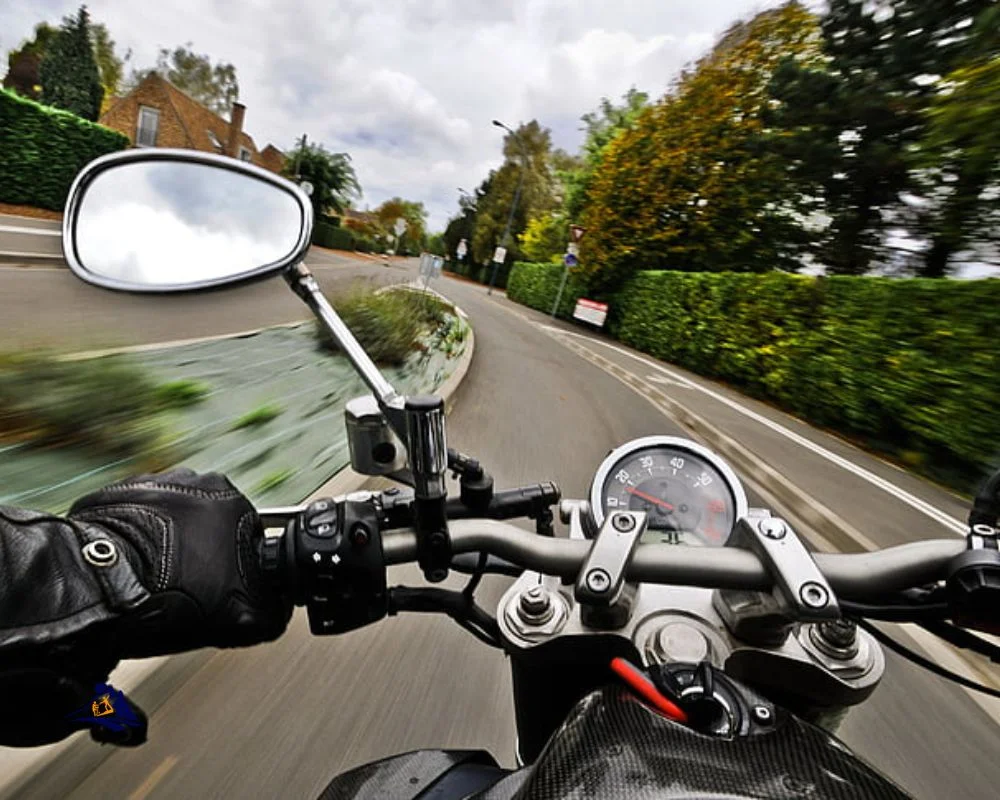
To recap, we’ve covered everything from motorbike rental fees and accommodation costs to travel expenses and safety tips. We’ve also provided a suggested itinerary and highlighted the best time to visit.
Now that you have all the information you need, it’s time to put your plan into action and embark on an unforgettable journey. Whether you’re a seasoned traveler or a first-timer, the Ha Giang Loop promises to leave you with lasting memories.
So buckle up, stay safe, and get ready for an adventure of a lifetime!
FAQ
Q: How much does it cost to do the Ha Giang Loop?
A: The cost of the Ha Giang Loop can vary depending on your travel preferences and budget. On average, you can expect to spend around X amount per day for accommodations, meals, transportation, and other expenses. Keep in mind that prices may fluctuate based on the season and the type of accommodation or services you choose.
Q: Is it safe to do the Ha Giang Loop?
A: While the Ha Giang Loop offers breathtaking views and an adventurous experience, it is important to prioritize safety. The roads can be challenging and require experienced motorbike riders. Make sure to wear appropriate protective gear, follow traffic rules, and stay aware of your surroundings. Additionally, it is recommended to check the weather conditions and road conditions before embarking on the journey. Have emergency contacts handy and make sure to inform someone about your travel plans.
Q: Do I need a motorbike license to ride on the Ha Giang Loop?
A: Yes, a valid motorbike license is required to ride in Vietnam, including on the Ha Giang Loop. Make sure to have an international driving permit or a Vietnamese motorbike license before renting a motorbike and hitting the road. It is important to adhere to local traffic laws and regulations.
Q: What are some budget tips for the Ha Giang Loop?
A: To make the most of your budget while exploring the Ha Giang Loop, consider staying in budget-friendly accommodations such as guesthouses or homestays. Opt for local eateries and street food stalls to save on meal expenses. Sharing transportation costs with fellow travelers or joining group tours can also help reduce expenses. Additionally, plan your itinerary wisely and prioritize the must-visit attractions to avoid unnecessary spending.
Q: What is the best time to visit Ha Giang?
A: The best time to visit Ha Giang is during the dry season, which typically runs from October to April. During this time, the weather is more pleasant, and there is less chance of encountering heavy rain or landslides. However, do keep in mind that prices may be higher during peak tourist seasons. If you want to avoid crowds and save on costs, consider traveling during the shoulder seasons of May-June or September-October.

